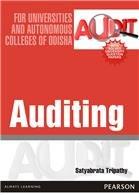Question
Yarn Company produces two different yarn products, Cotton Yarn (Product A) and Wool Yarn (Product B). Yarn Company uses a traditional volume-based costing system in
Yarn Company produces two different yarn products, Cotton Yarn (Product A) and Wool Yarn (Product B). Yarn Company uses a traditional volume-based costing system in which direct labor hours are the allocation base. Yarn Company is considering switching to an ABC system by splitting its manufacturing overhead cost of $1,000,000 across three activities: Design, Production, and Inspection. Under the traditional volume-based costing system, the predetermined overhead rate is $2.50/direct labor hour. Under the ABC system, the rate for each activity and usage of the activity drivers are as follows:
| Activity Rate | Usage by Cotton Yarn (Product A) | Usage by Wool Yarn (Product B) | |||||||
| Design (Engineering Hours) | $ | 600 | /hour | 200 | 300 | ||||
| Production (Direct Labor Hours) | $ | 1.25 | 100,000 | 300,000 | |||||
| Inspection (Batches) | $ | 500 | 300 | 100 | |||||
Calculate the indirect manufacturing costs assigned to Cotton Yarn under the traditional costing system.
Calculate the indirect manufacturing costs assigned to Wool Yarn under the traditional costing system.
Calculate the indirect manufacturing costs assigned to Cotton Yarn under the ABC system.
Calculate the indirect manufacturing costs assigned to Wool Yarn under the ABC system.
Which product is under-costed and which is over-costed under the volume-based cost system compared to ABC?
Product A:
Product B:
Step by Step Solution
There are 3 Steps involved in it
Step: 1

Get Instant Access to Expert-Tailored Solutions
See step-by-step solutions with expert insights and AI powered tools for academic success
Step: 2

Step: 3

Ace Your Homework with AI
Get the answers you need in no time with our AI-driven, step-by-step assistance
Get Started


